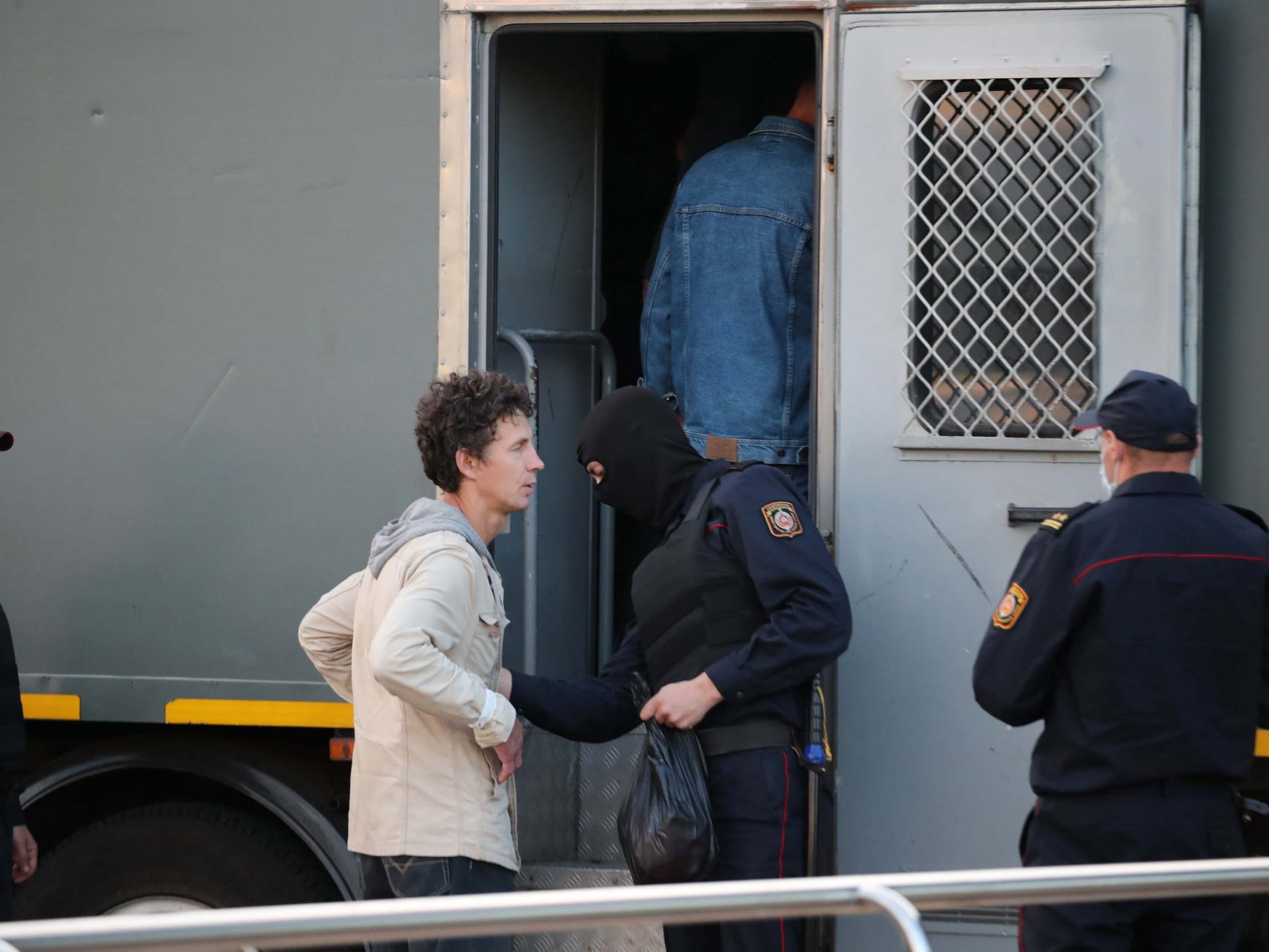Belarus moves to expel journalists working for western media
Action follows the arrests of several reporters this week

Your support helps us to tell the story
From reproductive rights to climate change to Big Tech, The Independent is on the ground when the story is developing. Whether it's investigating the financials of Elon Musk's pro-Trump PAC or producing our latest documentary, 'The A Word', which shines a light on the American women fighting for reproductive rights, we know how important it is to parse out the facts from the messaging.
At such a critical moment in US history, we need reporters on the ground. Your donation allows us to keep sending journalists to speak to both sides of the story.
The Independent is trusted by Americans across the entire political spectrum. And unlike many other quality news outlets, we choose not to lock Americans out of our reporting and analysis with paywalls. We believe quality journalism should be available to everyone, paid for by those who can afford it.
Your support makes all the difference.In an unexpectedly sharp escalation, Belarus on Saturday removed accreditations from local journalists working for western news outlets.
The move affects about a dozen journalists from organisations including the BBC, Reuters, Radio Liberty, Agence France-Presse and Associated Press.
It follows several rounds of arrests this week, all of which suggest that Alexander Lukashenko’s regime is getting serious about reasserting control.
On Friday, a TV crew working for German public broadcaster ARD was arrested. They spent the night in a police station before being deported.
In the 20 days since the disputed presidential elections, Belarus has presented anything but ideal working conditions for journalists.
In the first few days, dozens were beaten, arrested, and jailed in horrific conditions. There was evidence that some were deliberately targeted with rubber bullets.
Most foreign media were refused the right to work in the country; The Independent was an exception. Many have chosen to travel to Belarus regardless, but working undercover carries not inconsiderable risk.
Saturday’s decision, which comes ahead of a mass rally planned for Sunday, was communicated to journalists in a round of morning phone calls.
“They called me from the foreign ministry and said that by resolution of the government’s information security commission, my accreditation has been rescinded,” the BBC’s Tatyana Melnichuk told local media.
“To my question about what I was being accused of, I was told that they were only authorised to convey the information.”
The ban has not been extended to Russian journalists from state television channels, who have been working in Belarus from a privileged position.
Journalists working for Kremlin-funded RT were almost immediately released when detained on Thursday, while their colleagues at other media outlets waited for hours.
Join our commenting forum
Join thought-provoking conversations, follow other Independent readers and see their replies
Comments